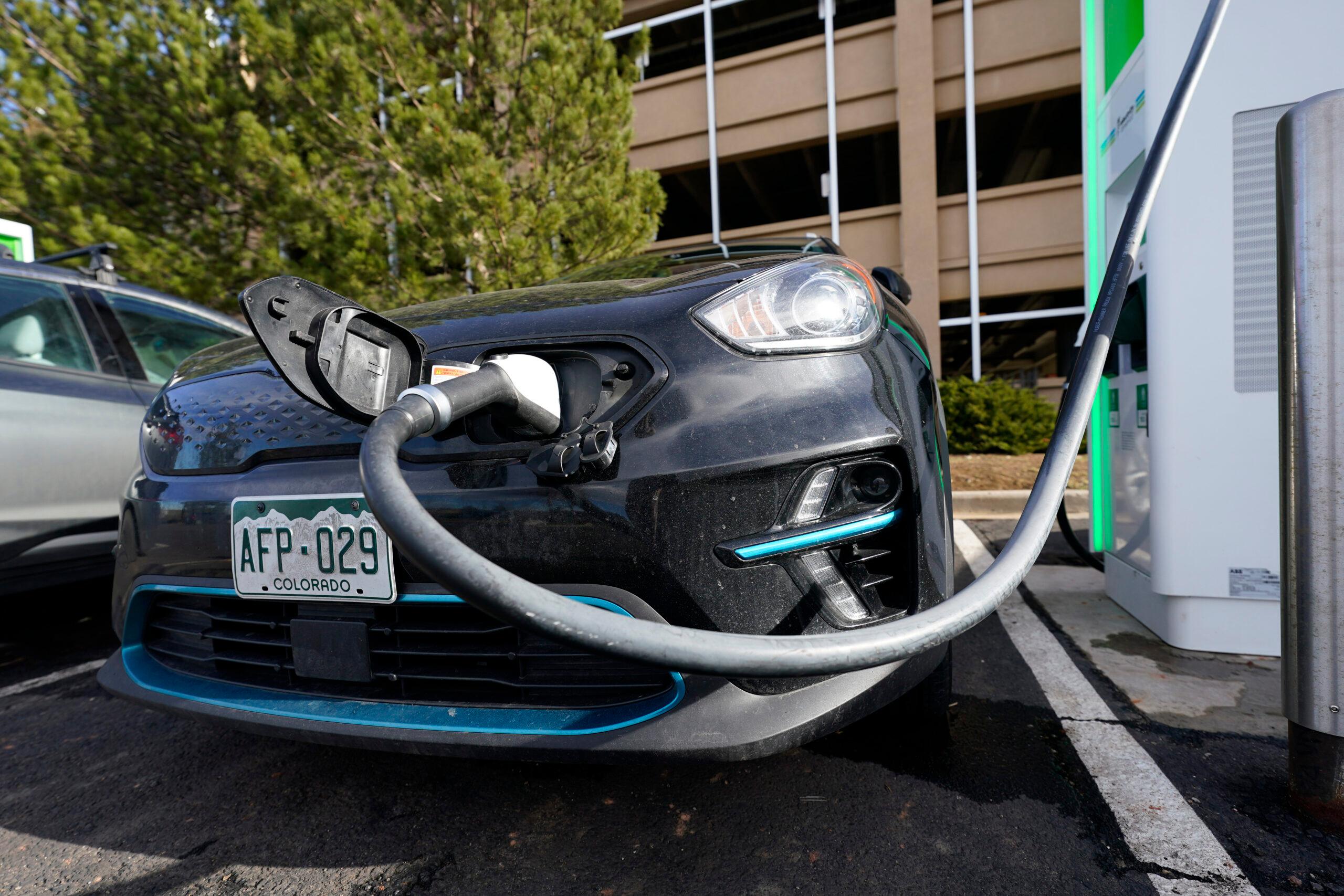
Every Colorado state park will soon have at least a pair of electric vehicle chargers under a new partnership with Rivian, an electric truck and SUV company. In a twist of economics, the plan could even add money to state coffers.
The Colorado Parks and Wildlife Commission unanimously approved the new partnership on Wednesday. Under the agreement, the electric automaker would build a minimum of two chargers at up to 50 CPW locations, including all 42 state parks. The company plans to complete the first installation by this July.
The plan shows how public and private interests have aligned behind new infrastructure for electric vehicles. To meet Colorado’s climate goals, Gov. Jared Polis has set a target to put nearly a million electric cars on the road by 2030, up from a current total of about 34,500 according to the Colorado Energy Office. The Polis administration has identified a lack of chargers as one of the biggest barriers, which is one reason the state continues to subsidize EV hookups across the state.
Car companies have come to a similar conclusion as they try to sell customers on a rapidly growing set of plug-in models. In a presentation to the commission, Rivian public policy manager Corey Ershow said the new network will assure potential customers they can visit their favorite trailhead or boat ramp.
“Our program will eliminate barriers and make EVs the everyday choice for outdoor recreation and transportation,” Ershow said.
The Level 2 chargers planned for the state parks can top off any U.S.-made plug-in car over the course of a few hours. While the systems are slower than the Level 3 fast chargers popping up along highways, Ershow said the slower chargers make sense for locations where drivers plan to stay parked for a while anyway. Rivian would also maintain the chargers for up to 25 years.
Ershow added the electricity itself would be the only cost to Colorado Parks and Wildlife. The agency could then recoup those expenses from drivers or even look to make some extra money.
“If it’s a matter of creating a small incremental fee to be a revenue generator of CPW, we can process that as well,” Ershow said.
Hannah Collazo, the state director of Environment Colorado, said the campaign for new chargers in state parks came to her over the summer. The pandemic had blown a hole in the state budget just as people flocked to parks for outdoor recreation. Under those circumstances, she figured a company might want to help the state with car chargers.
“We can adopt a trail. We can adopt a mile,” she said. “Why can’t people adopt EV chargers?”
To identify potential funding, her organization joined state leaders to launch the “Recharge Where You Recharge” initiative last February. She said the final terms from Rivian seem incredible, but, after careful examination, she realized it aligned with Rivian’s branding as a new kind of “adventure car company”
“You aren’t missing anything,” Collazo said. “Not one cent will fall on taxpayers.”








